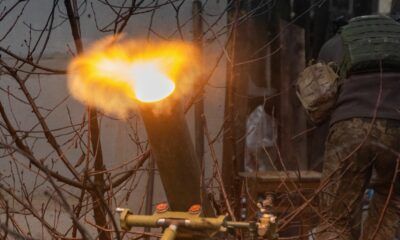INTERNACIONAL
How the UN emboldened Hezbollah terror regime as war with Israel imminent: 'Complete failure'

JERUSALEM — Nearly nine months of mounting tension between Israel and the radical Islamic Shiite terror group Hezbollah in Southern Lebanon looked set to implode this week after the U.S.-designated terror organization fired hundreds of missiles and rockets into northern Israel and the Israeli military responded with air strikes deeper inside Lebanon.
As communities on both sides of the border reported widespread damage and destruction, leaders in each country ramped up the rhetoric, with Hezbollah chief Hassan Nasrallah saying Wednesday that «an invasion of the Galilee remains on the table,» and Israel’s Foreign Minister Israel Katz declaring on X: «We are getting very close to the moment of deciding to change the rules of the game against Hezbollah and Lebanon. In an all-out war, Hezbollah will be destroyed, and Lebanon severely beaten.»
The increasing odds of an Israeli-Lebanon war come almost exactly 18 years after the previous round of fighting, and despite the existence of a U.N. Security Council resolution that is meant to preserve calm in the area and provide an international military force to keep the peace.
HEZBOLLAH BIGGER CHALLENGE THAN HAMAS TO ISRAEL: ‘CROWN JEWEL IN THE IRANIAN EMPIRE OF TERROR’
A UNIFIL (the United Nations Interim Force in Lebanon) patrol drives past the wreckage of a car that was targeted in an Israeli strike early on March 2 near the southern Lebanese town of Naqoura. (AFP via Getty Images)
In fact, Resolution 1701 — which was passed by the United Nations Security Council in August 2006 in an attempt to disarm Hezbollah and push it back from Israel’s border — seems to have had the opposite effect, analysts and experts told Fox News Digital this week, with the U.N. Interim Force in Lebanon (UNIFIL) failing to prevent the Iranian-backed group from rearming itself. Some estimate that it may have acquired as many as 150,000 missiles and rockets of various types and ranges since the resolution was passed.
Jonathan Conricus, who previously served as the Israeli military liaison with UNIFIL, as well as the army’s special representative to the U.N., told Fox News Digital that «the whole security architecture of Resolution 1701, its framework, its implementation, and even its mandate, everything is a complete failure.»
Now a Senior Fellow at the Washington D.C.-based Foundation for the Defense of Democracies (FDD), Conricus said the resolution «failed to prevent the military buildup of Hezbollah and it failed to prevent the conditions for a third Lebanon War, which we now see unfolding.»
«It is really putting the whole region at risk for a significant war that will be much more severe than what we’re facing with Hamas in Gaza,» he said.
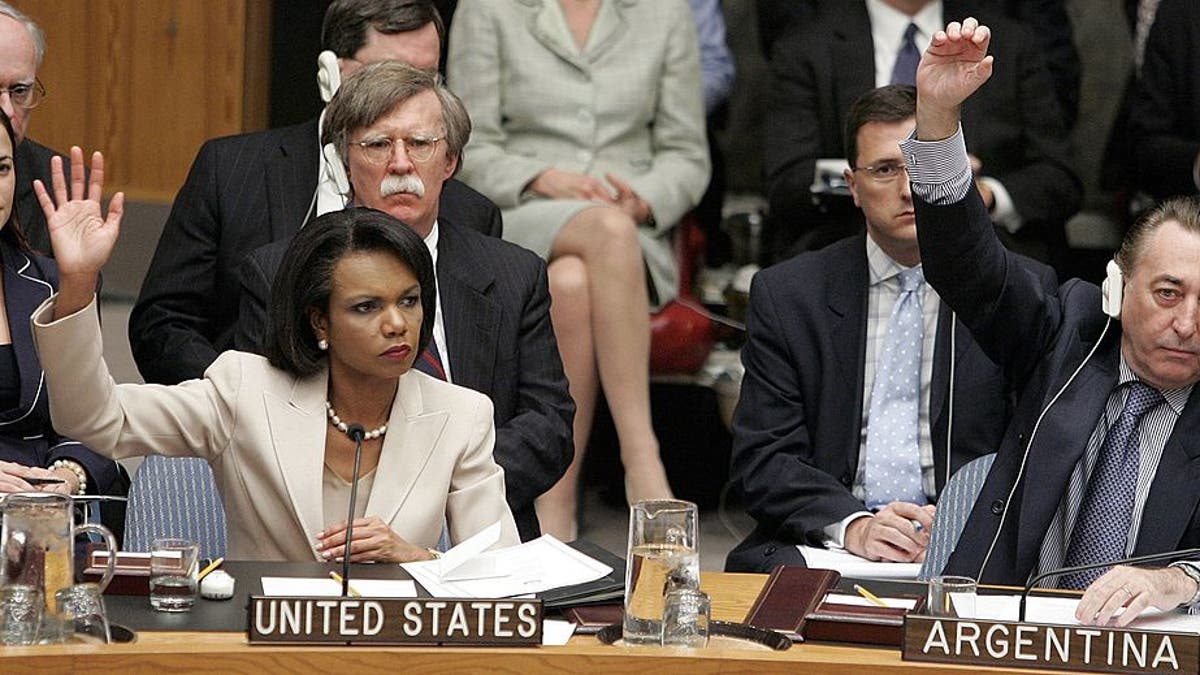
U.S. Secretary of State Condoleezza Rice and Argentinian Ambassador Cesar Mayoral raise their hands to vote at U.N. headquarters in New York City on Aug. 11, 2006. UN Resolution 1701, to halt the fighting in Lebanon and authorize the deployment of 15,000 U.N. peacekeepers to Southern Lebanon, was unanimously passed by the U.N. Security Council. (Stephen Chernin/Getty Images)
Conricus, who also previously served as the Israel Defense Forces’ international media spokesperson, said that Hezbollah had used a combination of «soft» and «hard» power, including directly targeting peacekeepers, to render UNIFIL ineffective in its task of preventing or even reporting the group’s mounting violations to the Security Council. Instead, he said, they «fed the world a distorted picture of the reality on the ground whereby it appeared that the resolution was actually being implemented and that everything was okay.»
In Israel, military intelligence and local residents have been warning for years that Hezbollah was rearming and moving its forces closer to the border, placing observation posts and even its bright yellow flag in positions that were in clear sight of Israeli communities and army bases.
ODDS OF ISRAEL-HEZBOLLAH WAR ‘INEVITABLE,’ EXPERTS FEAR: ‘TOTALLY PESSIMISTIC’
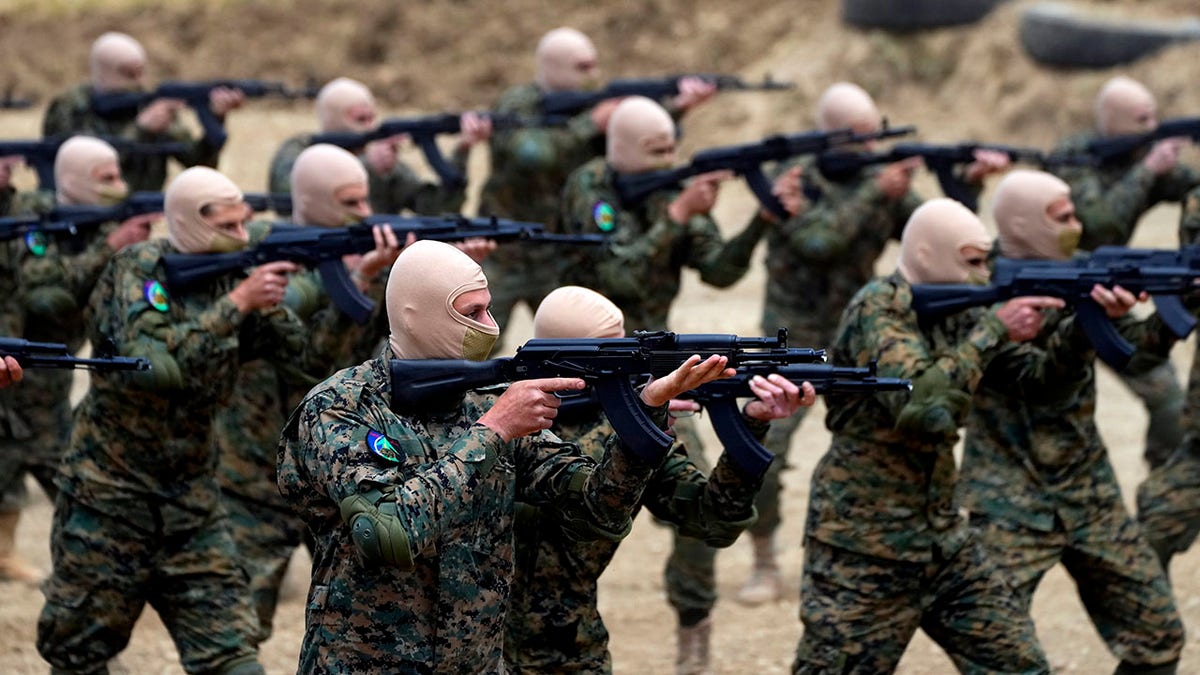
Fighters from the Lebanese terror group Hezbollah carry out a training exercise in Aaramta village in southern Lebanon in May 2023. (AP/Hassan Ammar)
Following the brutal Oct. 7 attack in which thousands of Hamas-led terrorists infiltrated civilian communities in southern Israel — and the regional tensions around the ensuing war in Gaza — Israeli authorities, fearing a similar attack from Hezbollah, decided to evacuate some 80,000 residents from their homes on the border with Lebanon.
In Lebanon, there have been reports that Israeli airstrikes have damaged or destroyed around 1,700 homes in the southern border region and many civilians there, too, have also been forced to evacuate further to the north as the fighting escalates.
«We are extremely concerned about the current situation and the potential for the conflict in the Middle East to escalate and widen,» Farhan Aziz Haq, a spokesman for U.N. Secretary-General Antonio Guterres, told Fox News Digital. «The Secretary-General has warned that any escalation of the fighting would be a catastrophe for the region.»
Haq said he believed the resolution had been successful in «contributing to over 18 years of relative stability for communities in northern Israel and southern Lebanon.» He also said that the U.N.’s special coordinator for Lebanon, whose role is to mediate between Lebanon and Israel, and the UNIFIL force were still intensively engaged in the area.
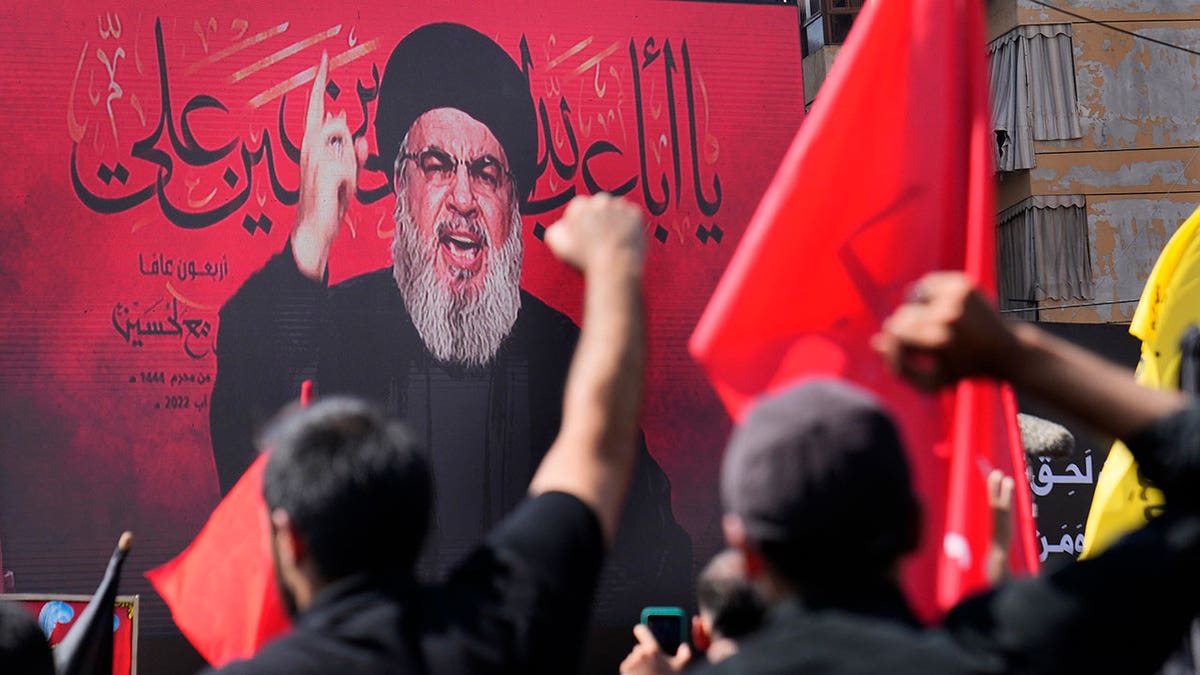
Hezbollah leader Sheik Hassan Nasrallah speaks via a video link during the Shiite holy day of Ashoura in Beirut, Lebanon, on Aug. 9, 2022. (AP Photo/Hussein Malla)
However, Haq said, «ultimately, it is the responsibility of the parties to implement Resolution 1701 and its success depends on the parties to re-commit to its full implementation and immediately return to a cessation of hostilities.»
UNIFIL, he said, was only there to support this implementation but could not replace the local parties or substitute for a longer-term political process.
A former member of the peacekeeping force, who spoke to Fox News Digital on condition of anonymity due to the sensitivity of his position, confirmed that UNIFIL’s role was not to fight and that over the past 18 years it «never interfered with Hezbollah.»
UN WARNED TO STOP GIVING HEZBOLLAH FREE REIN IN LEBANON — OR FACE CONSEQUENCES

Firefighters in the Israeli city of Kiryat Shmona battle blazes sparked by Hezbollah rockets and drones on June 3. More than 30 crews worked throughout the night to get wildfires in the Galilee and Golan under control. (Erez Ben Simon/TPS-IL)
«The message was very clear that we needed to step aside whenever Hezbollah started acting,» the former serviceman said, adding that the force even reduced its patrols along the Israel-Lebanon border in order to avoid confrontation.
«UNIFIL is there to observe but will not put its troops in danger,» he said.
«One could even argue that Hezbollah has benefited from the U.N. presence because they’ve been able to use UNIFIL bases as cover, placing their firing positions nearby,» he said.
An Israeli official, speaking anonymously in order to comment more broadly on the U.N. and the failure to uphold the 1701 resolution, told Fox News Digital that Israel welcomed the presence of an international peacekeeping force on its northern border, but that the U.N. resolution was never properly implemented and that «from day one, Hezbollah began to rearm.»
«UNIFIL chose not to engage because when it did try to stop Hezbollah, it was attacked,» the official said, emphasizing that Hezbollah did everything but stay out of the area, amassing its terrorists and weapons along the border in plain sight.
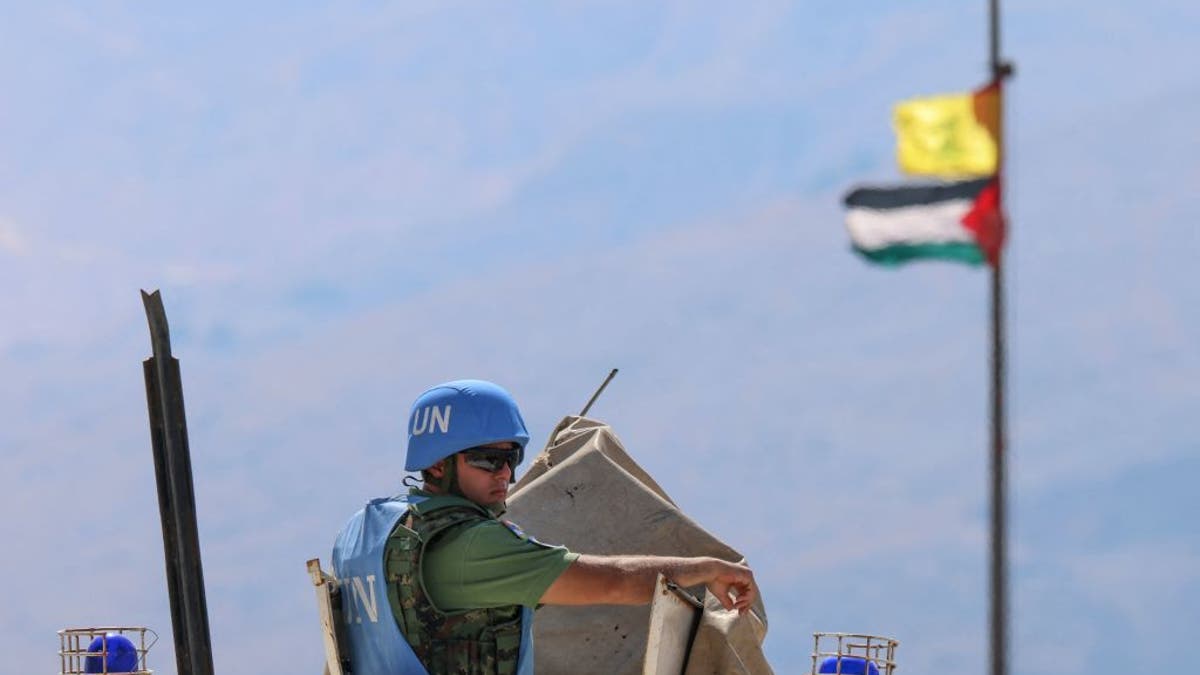
The Palestinian flag and the flag of Hezbollah wave in the wind on a pole as peacekeepers from the United Nations Interim Force in Lebanon (UNIFIL) patrol the border area between Lebanon and Israel on Hamames hill in the Khiyam area of southern Lebanon on Oct. 13, 2023. (Joseph Eid/AFP via Getty Images)
«The main problem is that the U.N. ignored Hezbollah’s small steps from the beginning and even now, when they are targeting civilians in Israel almost every day, the U.N. continues to ignore [Hezbollah’s] acts of violence,» said the official.
Michael Horowitz, head of intelligence for Le Beck, a Middle-East-based geopolitical consultancy, told Fox News Digital that «it is obvious to everyone the resolution has failed.»
Horowitz — whose recent book, «Hope and Despair: Israel’s Future in the New Middle East,» looks at Israel’s uncertain place in a region scarred by conflict and insecurity — pointed out that the resolution called «for the establishment of an ‘area free of any armed personnel, assets and weapons’ other than the Lebanese army and UNIFIL, yet not a day has gone by since the resolution was passed 18 years ago that this key requirement was ever met.»
UN PEACEKEEPING PATROL FILMED COMING UNDER ATTACK BY HEZBOLLAH IN LEBANON
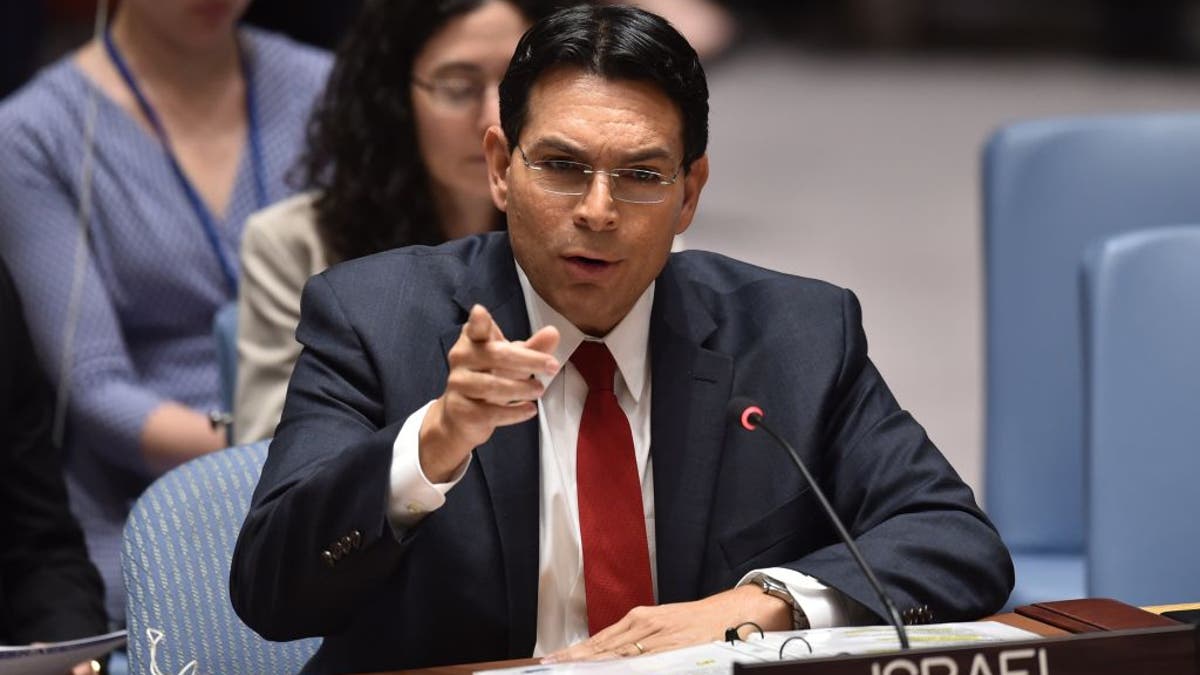
Former Israeli Ambassador to the United Nations Danny Danon speaking at a U.N. Security Council meeting at U.N. Headquarters in New York on May 15, 2018. Danon had previously warned that UNIFIL was failing to fulfill its mandate. (Hector Retamal/AFP via Getty Images)
«The opposite has happened,» he said. «Hezbollah has maintained and entrenched its presence in southern Lebanon, in the de facto «buffer zone» that Resolution 1701 called for, and even along the border itself.»
UNIFIL, Horowitz added, «has been constantly undermined by Hezbollah, with its forces unable to enter certain areas without facing violence and intimidation by the U.S.-designated terror group.»
«The only reason there has been 18 years of quiet along that border is because of Israel’s military deterrence, and the fact that neither Israel nor Hezbollah are interested in a conflict,» he said.
Dr. Eyal Pinko, a senior research fellow at the Begin-Sadat Center for Strategic Studies at Bar Ilan University near Tel Aviv, also said that the 18 years of relative quiet on the Israel-Lebanon border had nothing to do with the U.N. resolution or the international force sent there to enforce it but was due to external factors.
«Following the Second Lebanon War, which ended in 2006, Hezbollah had to rebuild its forces, receiving support from Iran, that took about seven or eight years,» he said. «Then they became engaged in the civil war in Syria, sending hundreds of troops to help the regime of [President Bashar] Assad — this was their main priority and war with Israel was less relevant.»
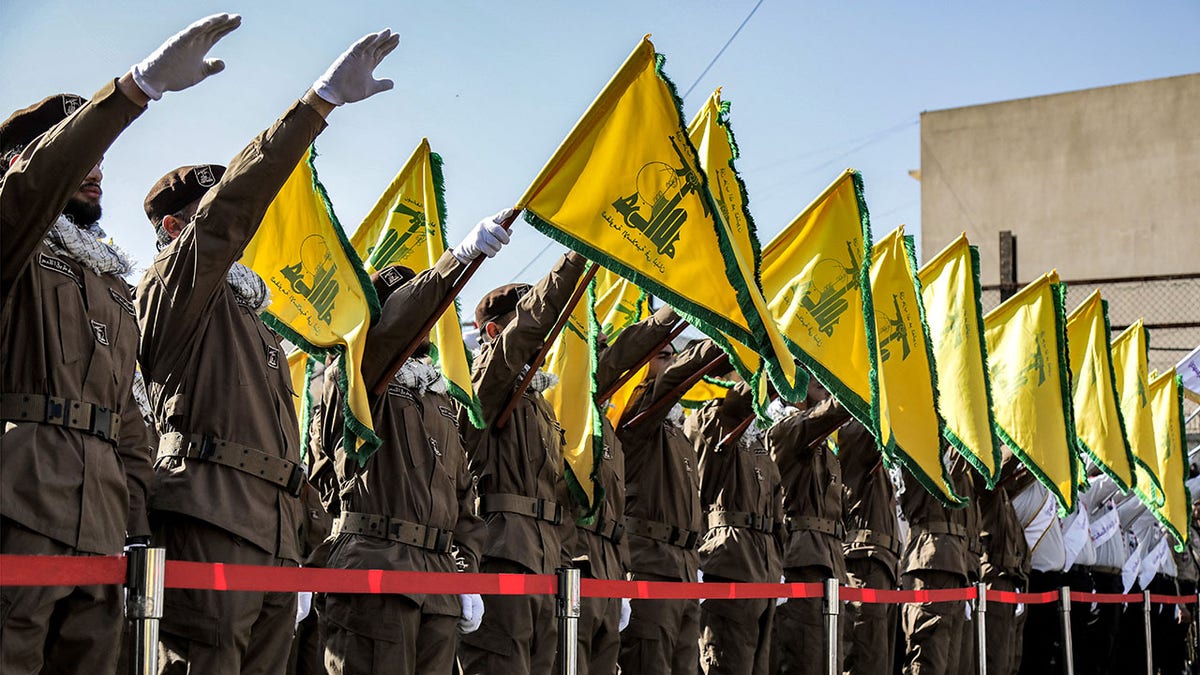
Hezbollah members salute and raise the group’s yellow flags during the funeral of fallen fighters who were killed in an Israeli strike in Shehabiya in south Lebanon on April 17. (AFP via Getty Images)
After assisting in stabilizing Assad’s position in Syria, Hezbollah faced some economic hardships as its benefactor, Iran, cut back on funding due to sanctions imposed during the Trump administration. Additionally, the COVID-19 pandemic and a deadly 2020 explosion at Beirut’s main port, which was said to have been at a Hezbollah weapons facility, have left the country’s economy in tatters.
This week, President Biden’s Special Envoy Amos Hochstein visited the region in an attempt to mediate a diplomatic solution and restore calm before it turns into a full-blown war between the sides. Following a day of meetings with Israeli leaders on Tuesday, he headed to the Lebanese capital, Beirut, where he told journalists in a briefing that the «situation is serious.»
NETANYAHU SAYS IF HEZBOLLAH LAUNCHES A WAR AGAINST ISRAEL AND INVADES, ‘IT WILL MAKE THE MISTAKE OF ITS LIFE’
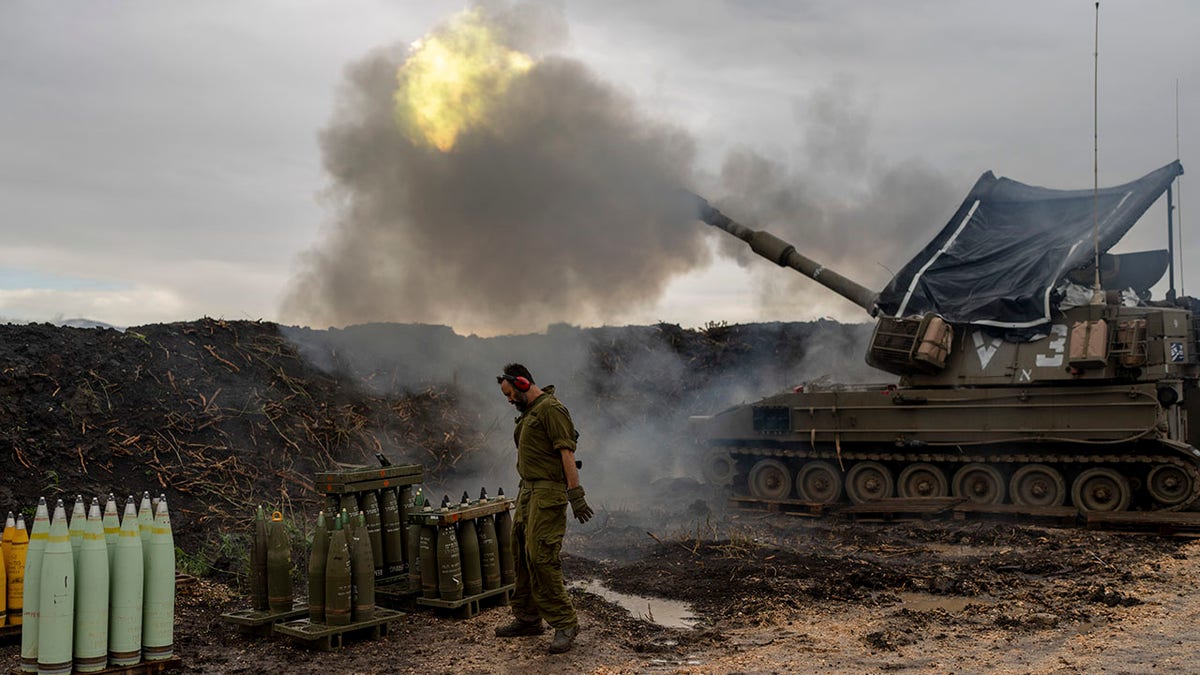
Israeli soldiers fire a mobile howitzer in the north of Israel, near the border with Lebanon, on Jan. 15. (AP Photo/Ohad Zwigenberg)
«We have seen an escalation over the last few weeks, and what President Biden wants to do is to avoid a further escalation to a greater war,» said Hochstein, who in 2022 succeeded in mediating a maritime agreement between the two countries. «That is the effort here. It will take everyone’s interest in ending this conflict now. And we believe that there is a pathway diplomatically to do it. If the sides agree to it.»
Hochstein, who made no mention of Resolution 1701 or the international UNIFIL force, did not say what the administration believes is the pathway to preventing war and bringing peace to the region.
Jonathan Schanzer, also from the FDD, said Resolution 1701 «has only reinforced the absurdity of the U.N., and its ability to broker peace in the Middle East.»
«Hezbollah never stopped operating in southern Lebanon,» he said, adding, «If anything, the group has tightened its stranglehold on Lebanon over the last 18 years, and that has enabled the group to stockpile more advanced weapons and prepare the ground for the battle that looms.»
CLICK HERE TO GET THE FOX NEWS APP
Schanzer said that while part of the problem definitely stemmed from the lack of a legitimate mandate for UNIFIL and was also partly due to corruption in the Lebanese Armed Forces, which is supposed to bolster UNIFIL’s work, ultimately «it all tracks back to the U.N.’s inability to acknowledge its own shortcomings and failures.»
«We all knew the system failed years ago, but the fiction of a functioning apparatus was perpetuated nonetheless,» he said.
INTERNACIONAL
¿Quiénes son los hutíes y por qué los atacan EE-UU. e Israel?

¿Quiénes son los hutíes?
¿Considera Estados Unidos a los hutíes un grupo terrorista?
¿Por qué atacan a los barcos?
¿Cómo están afectando los ataques a los países de todo el mundo?
¿Qué ha estado haciendo Estados Unidos para detener los ataques?
¿Qué ha señalado Israel que hará?
-
INTERNACIONAL3 días ago
Rusia bombardeó Ucrania en la madrugada de Navidad: ataque masivo con misiles al sector energético
-
ECONOMIA3 días ago
Otro fallo de la Justicia para que no se aplique el Impuesto a las Ganancias al sueldo
-
POLITICA2 días ago
Marcela Pagano denunciará penalmente a los agentes de tránsito por el escándalo con los diplomáticos rusos
-
POLITICA2 días ago
Nueva amenaza de paro: ATE exige la renovación de 50.000 contratos estatales
-
POLITICA1 día ago
Otro diputado abandonó Unión por la Patria con críticas a la conducción de Cristina Kirchner: “Liderazgos del pasado”
-
POLITICA2 días ago
Ciberdelincuentes ingresaron a la página oficial del Gobierno y publicaron mensajes contra Javier Milei



















